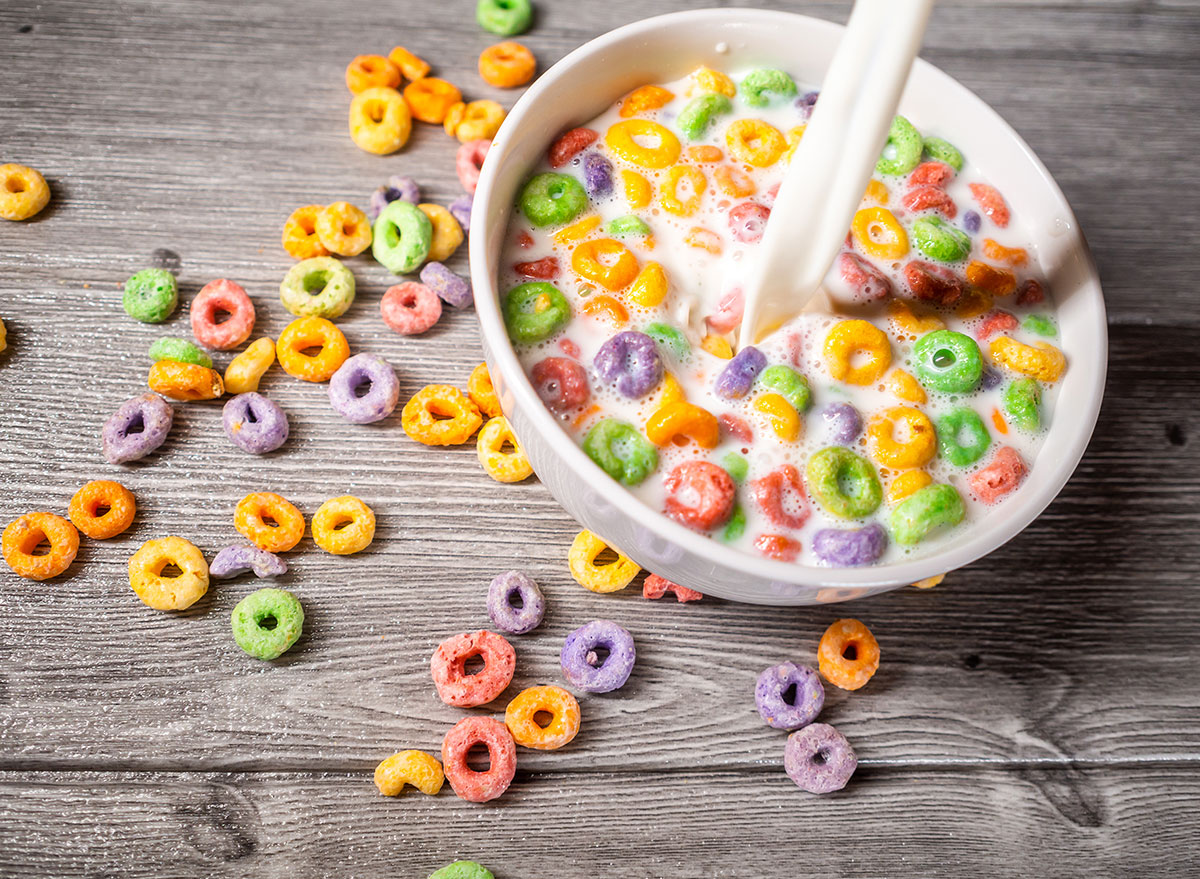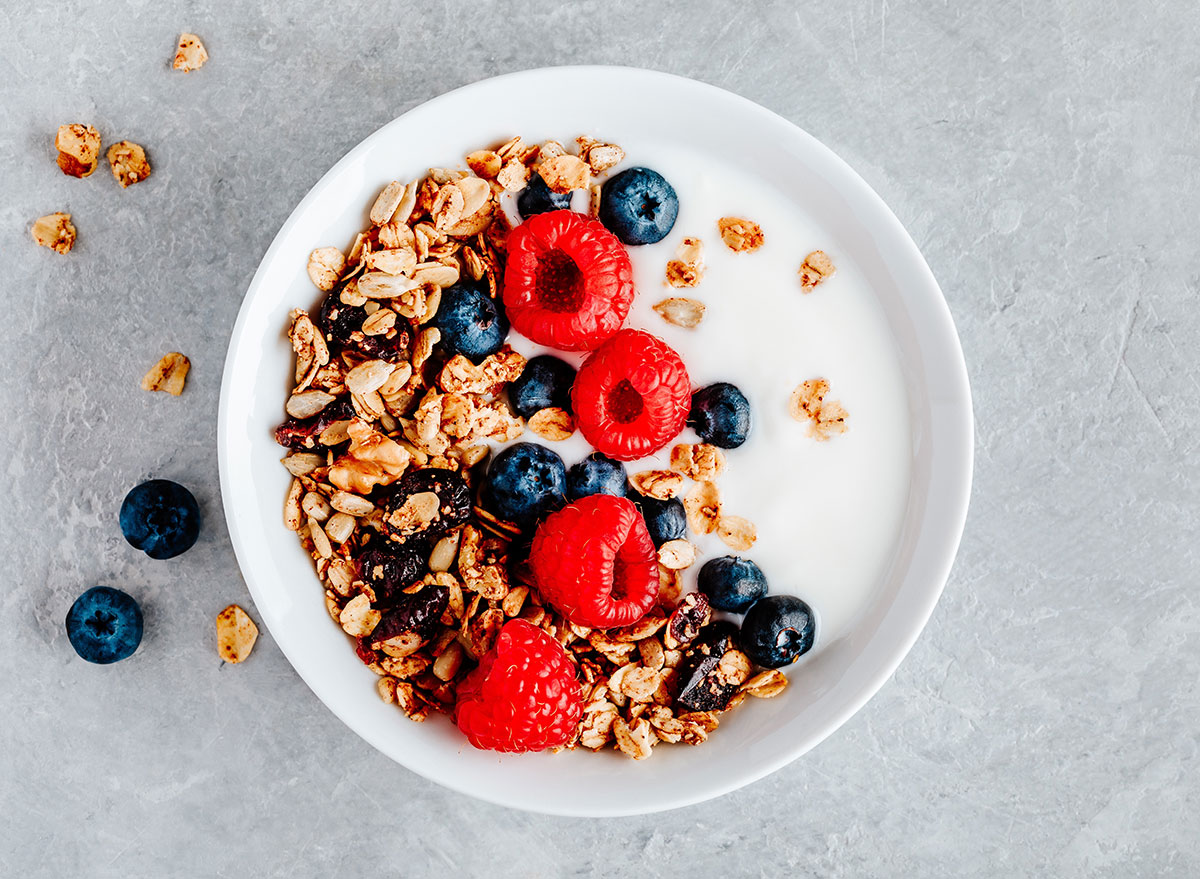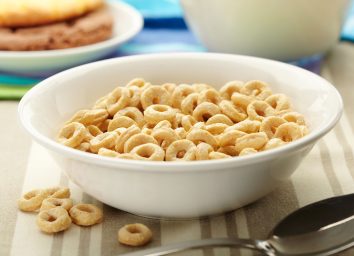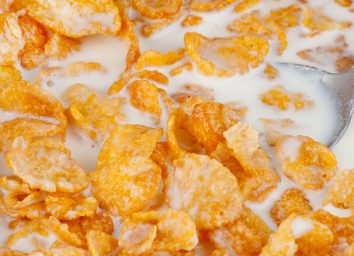Turns Out, Cereal Is Even Worse For You Than We Thought

Eating a high-quality, balanced breakfast is key for maintaining good health and feeling energized throughout the entirety of the day.
In fact, a 2018 study found that the quality of your breakfast is so important that it is actually worse for you to eat an unhealthy breakfast than to eat no breakfast at all!
And when it comes to unhealthy breakfast food, cereal may actually be one of the most dangerous villains. Read on to learn why cereal is even worse for you than we thought, and for more healthy eating tips make sure to check out The 7 Healthiest Foods to Eat Right Now.
Why is cereal so bad?

Cereal is delicious, and it's quite possibly one of the worst breakfast foods you can eat. Not only is it usually loaded with added sugar, but it is also lower in key nutrients that are important for a healthy morning meal.
Monique Tello, MD, MPH tells Harvard Health Publishing that breakfast choices like cereal, muffins, and bagels can negatively impact your blood sugar and insulin levels.
"The insulin easily ushers all that sugar into your fat cells, where it becomes stored energy, also known as body fat," says Tello.
The sugar in cereal can affect your brain
One of the worst things about cereal is its added sugar content. In a 60-gram serving of Frosted Mini-Wheats, you're consuming about 51 grams of carbohydrates and 12 grams of added sugar.
In a 3/4 cup serving of Honey Nut Cheerios, you'll get about 22 grams of carbohydrates and 9 grams of sugar.
These numbers at first may not seem terrible at first, but you have to consider the sugar content in the milk you're going to add (that's 13 grams per 8-ounce cup), as well as how easy it is to exceed the small serving size of just 3/4 cup!
Not only does added sugar lead to things like weight gain, an increased risk of diabetes, and higher blood pressure levels, but this larger amount of sugar in the morning hours could have lasting effects throughout your day.
The Journal of Physiology published a review about the connections between your brain health and diets full of added sugar, and what they found was that eating higher amounts of sugar with lower amounts of healthy fats can actually lead to lower cognitive function.
Cereal can leave you feeling hungrier
Although eating things like pastries, pancakes, and sugary cereals are a delicious way to start your morning, these processed carbohydrates with a lot of added sugar will leave you feeling hungrier throughout the day and craving more sugary carbs.
According to the Harvard School of Public Health, when you eat meals higher in added sugar and refined carbs, your body stores them as fat very quickly.
They found that these types of meals not only lead to weight gain but also contribute to more lethargy and increased feelings of hunger and cravings.
What to eat instead

There are a few different ways to still enjoy the things you love about cereal without facing the negative side effects. If you absolutely want to stick to your combo of cereal and milk in the morning, try one of these healthier cereal options. They are lower in added sugar and higher in nutrients like protein and fiber.
If you love cereal because it's sweet and easy to make in the morning, try something like greek yogurt with a small amount of cereal or granola and fruit on top.
This way you're getting more protein and the crunchy cereal texture, but you'll eat less of it since it's just a topping and not the whole meal.
And finally, another great option for people who love an easy, sweeter breakfast is oatmeal! It provides tons of fiber and protein and gives you the opportunity to dress it up however you want.
For more healthy eating news, make sure to sign up for our newsletter!
Read these next:








